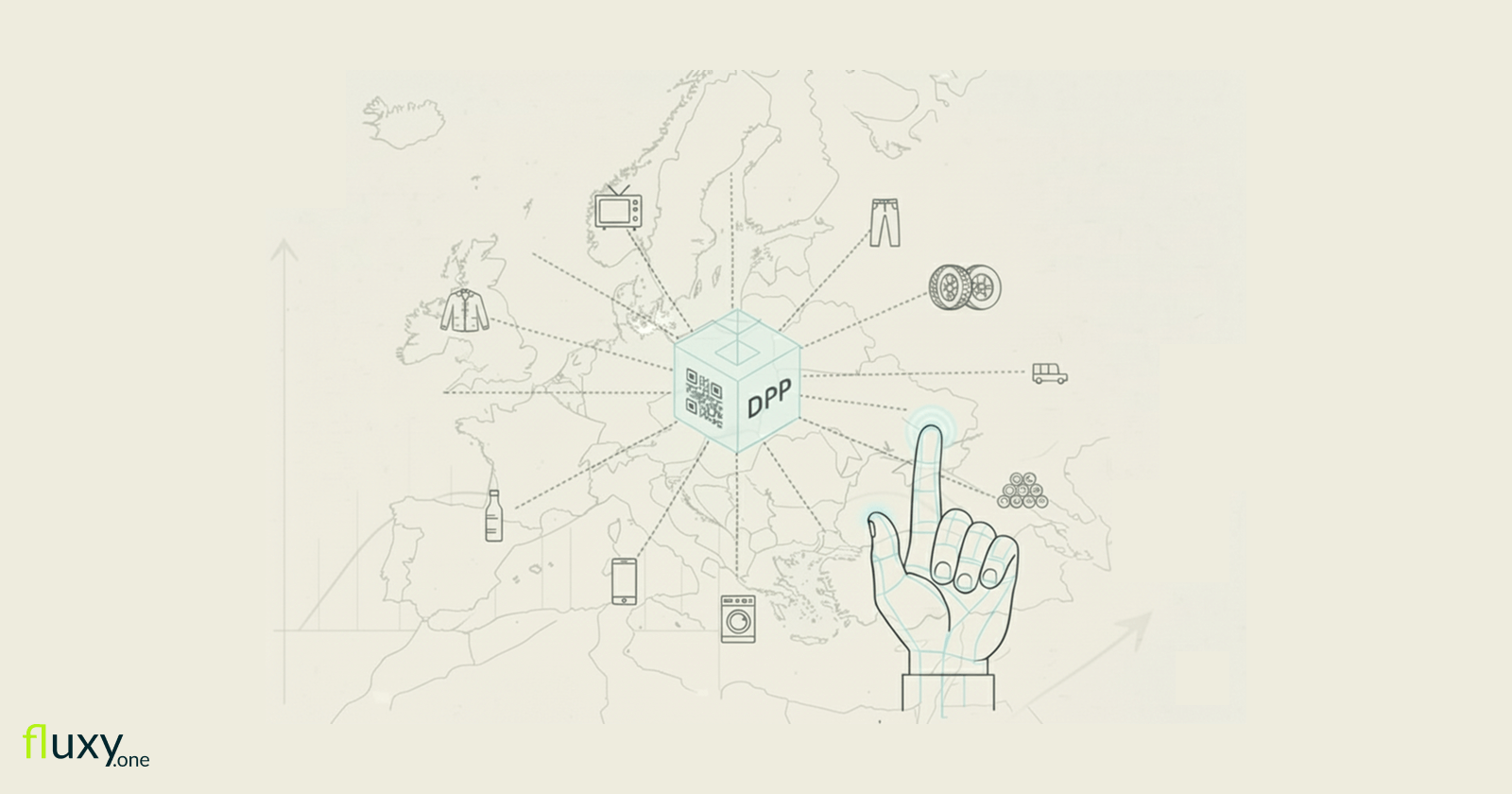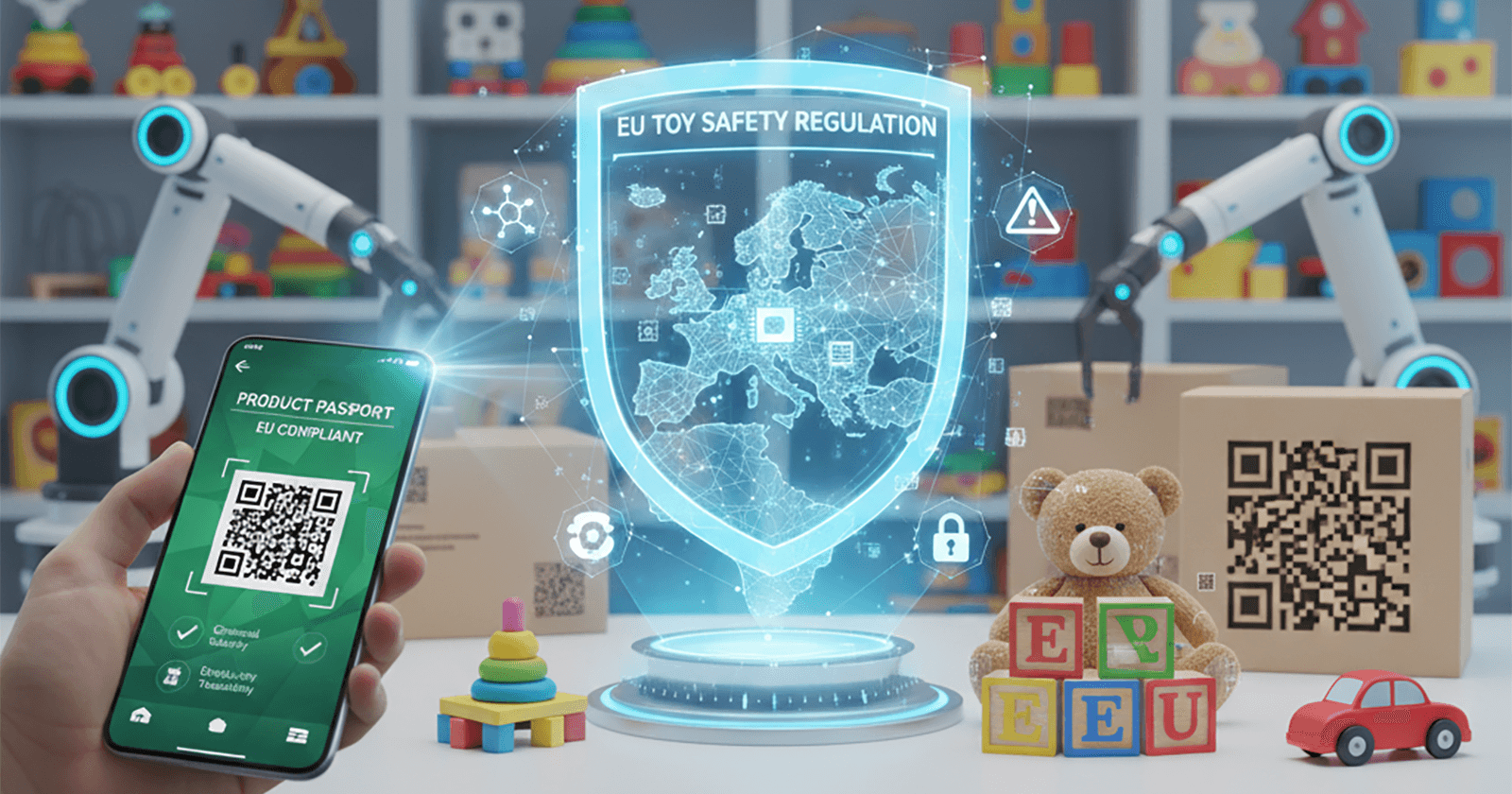Summary of Resolution (P10_TA(2025)0242)
Introduction: Legislation is Adopted, DPP is Inevitable
Clients and partners of Fluxy.One, it’s time to acknowledge the new reality: the Digital Product Passport (DPP) is not a distant vision — it is a legislative certainty within the European market.
The Parliament’s position, expressed in Resolution P10_TA(2025)0242, builds upon several major legislative pillars that together form the new regulatory landscape:
- Ecodesign for Sustainable Products Regulation (ESPR), Regulation (EU) 2024/1781 — establishes the legal foundation for the mandatory introduction of the DPP.
- Product Liability Directive (PLD), Directive (EU) 2024/2853 — extends liability to digital components and software updates, directly linking a company’s responsibility to the digital data included in its DPP.
The era of digital and data-driven compliance has officially begun.
Digitalisation is Here: Instructions and Declarations
The Parliament’s Resolution firmly supports the digitalisation of product documentation, as outlined in initiatives like the “Omnibus IV” package. These measures affect manufacturers now, and they are a crucial step towards DPP readiness.
The Link to DPP
The digitalisation of Declarations of Conformity (DoC) and Instructions for Use (eIFUs) is only the first step. The DPP will become the single digital access point and data container connecting these documents with sustainability and safety information.
In practice, the DPP will unify all product-related data — from compliance to environmental performance — creating a transparent digital ecosystem accessible across the supply chain.
DPP Will Impact Everything: Horizontal Scope
The most important message for any company operating in the EU is this: the DPP is not sector-specific. It is a horizontal obligation, set to cover almost all physical goods placed on the market.
All-Encompassing (ESPR):
- ESPR (Regulation (EU) 2024/1781) allows the European Commission to introduce DPP requirements for almost any product category (exceptions: food, medicines).
Priority Sectors:
- Implementation has started for high-priority sectors: Batteries (Batteries Regulation EU 2023/1542), Textiles, Consumer Electronics.
Supply Chain:
- DPP requires data from manufacturers, importers, distributors, and recyclers — traceability across the whole supply chain is mandatory.In short: if your company sells physical goods in the EU, you will soon be legally required to create, manage, and share a Digital Product Passport for every product.
Conclusion: Do Not Delay. Start Implementation Now!
The timeline for DPP enforcement will be defined by Delegated Acts adopted in the coming years. However, the Parliament’s Resolution explicitly urges the Commission to accelerate this process. The clock is ticking — and companies must act now.
Why Implementation is Urgent
Data Complexity →
- Collecting, digitising, and structuring large amounts of data (materials, origin, repair history, CO₂ footprint) takes time.
Interoperability →
- DPP must be compatible with suppliers’, repair services’, and recyclers’ systems — technical integration requires planning.
Reputation Risk →
- Early adopters gain competitive advantage and build consumer trust through verifiable sustainability claims.
Fines and Surveillance →
- Non-compliance triggers penalties. Missing or incorrect DPP data makes products illegal on the EU market.
Final Point
The laws are adopted. The DPP is not an “if” but a “when.” The sooner your company begins data auditing, establishes a DPP architecture, and integrates with the Fluxy.One platform, the smoother your adaptation will be — and the fewer financial and reputational risks you’ll face.
At Fluxy.One, we provide accessible solutions for SMEs, helping you turn compliance into opportunity.
Be proactive — start your implementation today. Our special “500 DPPs for €500” tariff offers a simple, affordable path to compliance and competitiveness in the new digital era of the EU market.











